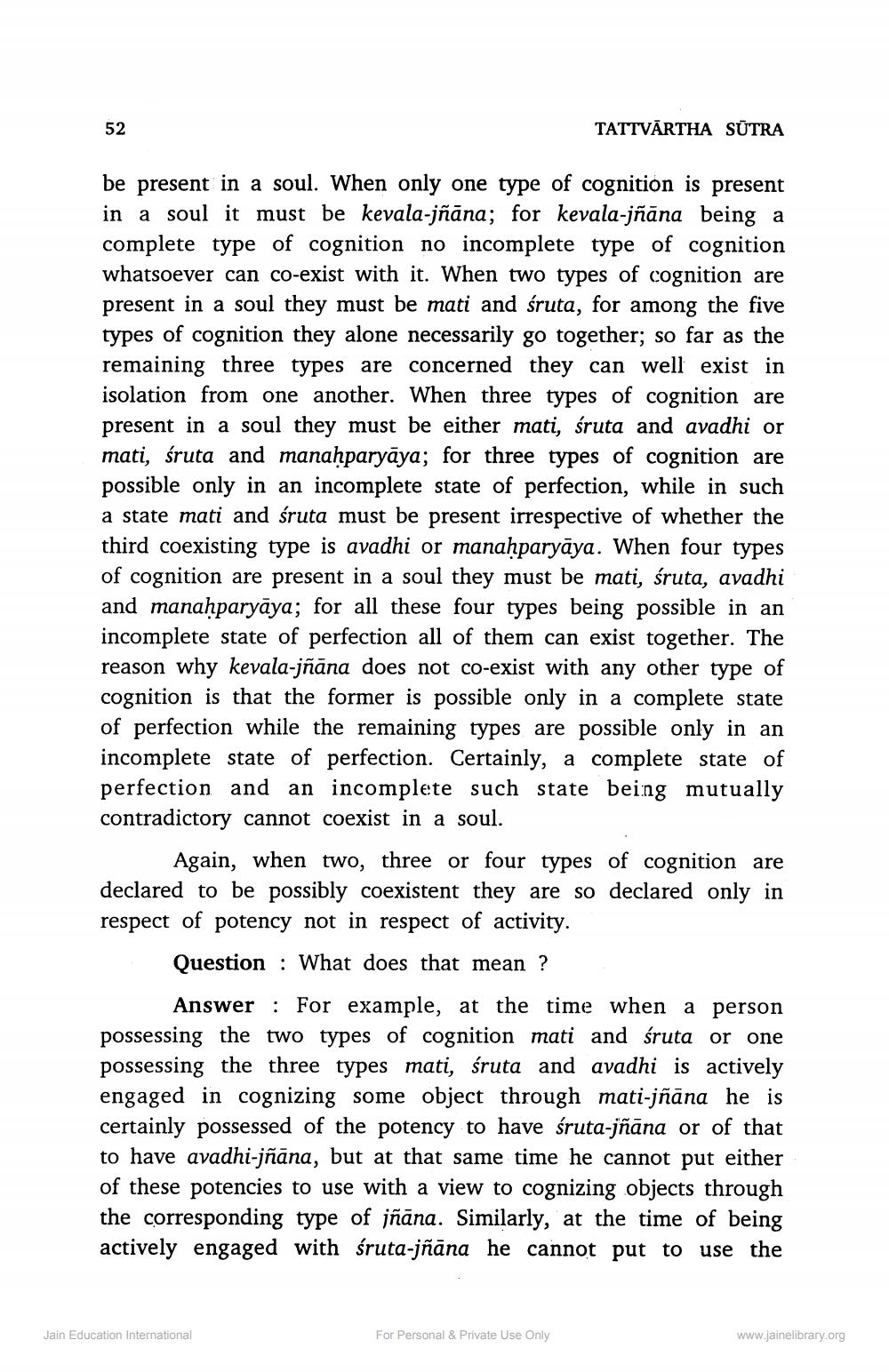________________
52
be present in a soul. When only one type of cognition is present in a soul it must be kevala-jñāna; for kevala-jñāna being a complete type of cognition no incomplete type of cognition whatsoever can co-exist with it. When two types of cognition are present in a soul they must be mati and śruta, for among the five types of cognition they alone necessarily go together; so far as the remaining three types are concerned they can well exist in isolation from one another. When three types of cognition are present in a soul they must be either mati, śruta and avadhi or mati, śruta and manaḥparyāya; for three types of cognition are possible only in an incomplete state of perfection, while in such a state mati and śruta must be present irrespective of whether the third coexisting type is avadhi or manaḥparyāya. When four types of cognition are present in a soul they must be mati, śruta, avadhi and manaḥparyaya; for all these four types being possible in an incomplete state of perfection all of them can exist together. The reason why kevala-jñāna does not co-exist with any other type of cognition is that the former is possible only in a complete state of perfection while the remaining types are possible only in an incomplete state of perfection. Certainly, a complete state of perfection and an incomplete such state being mutually contradictory cannot coexist in a soul.
TATTVĀRTHA SŪTRA
Again, when two, three or four types of cognition are declared to be possibly coexistent they are so declared only in respect of potency not in respect of activity.
Question: What does that mean?
Answer: For example, at the time when a person possessing the two types of cognition mati and śruta or one possessing the three types mati, śruta and avadhi is actively engaged in cognizing some object through mati-jñāna he is certainly possessed of the potency to have śruta-jñāna or of that to have avadhi-jñāna, but at that same time he cannot put either of these potencies to use with a view to cognizing objects through the corresponding type of jñāna. Similarly, at the time of being actively engaged with śruta-jñāna he cannot put to use the
Jain Education International
For Personal & Private Use Only
www.jainelibrary.org




